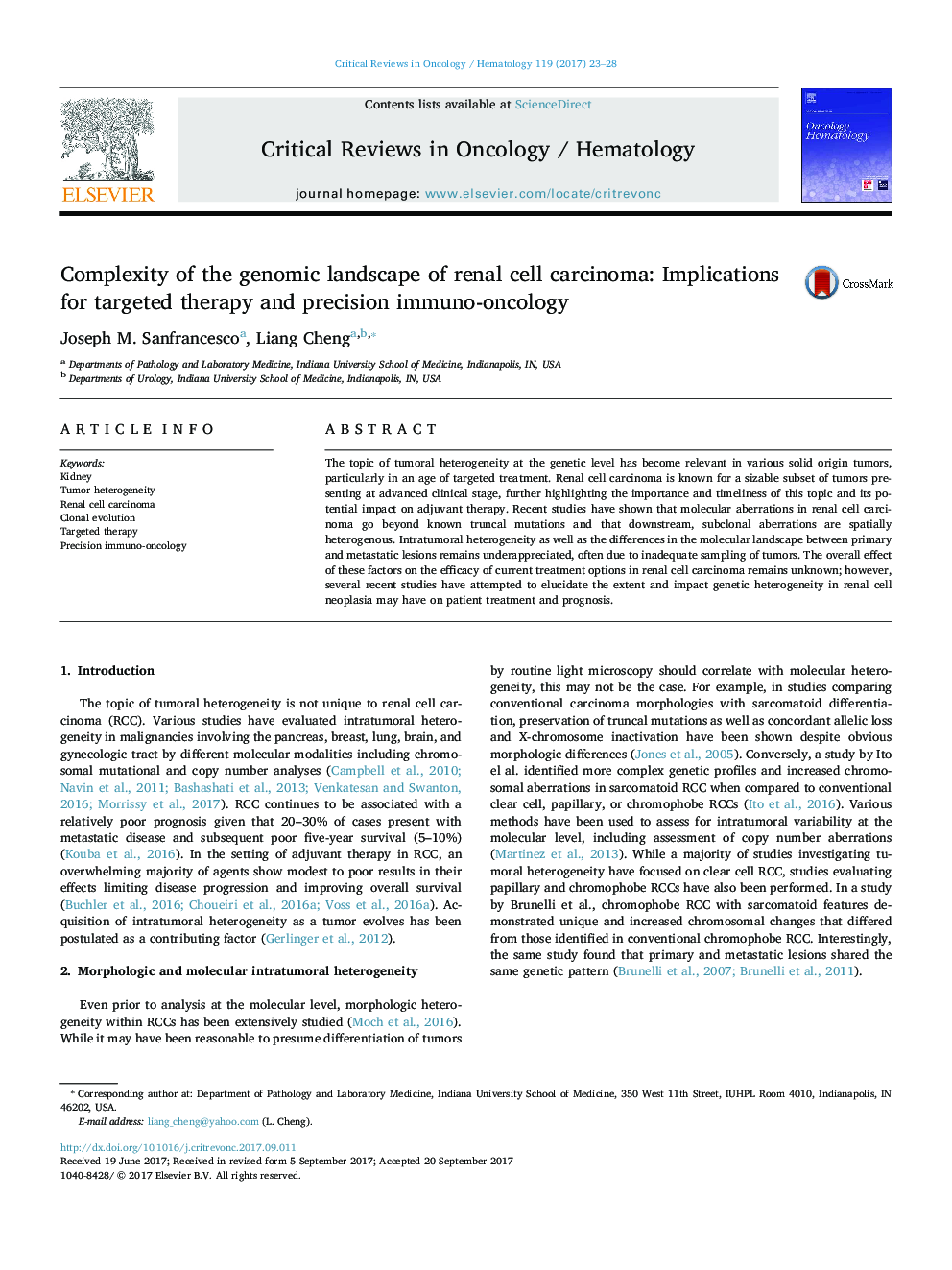| Article ID | Journal | Published Year | Pages | File Type |
|---|---|---|---|---|
| 5663985 | Critical Reviews in Oncology/Hematology | 2017 | 6 Pages |
â¢Genetic heterogeneity within renal cell carcinoma is of growing interest due to its potential effects on therapeutic options and drug efficacy.â¢Spatially heterogenous, subclonal mutations may contribute to tumor progression and poor efficacy of current treatment options.â¢Multifocal tumor sampling to appropriately assess the extent of transcriptomic and genomic profile is critical.â¢Molecular pathways associated with traditional truncal molecular aberrations (e.g. VHL) remain fundamental targets for RCC patientsâ¢A growing understanding of subclonal mutations and intratumoral heterogeneity may offer new treatment approach.
The topic of tumoral heterogeneity at the genetic level has become relevant in various solid origin tumors, particularly in an age of targeted treatment. Renal cell carcinoma is known for a sizable subset of tumors presenting at advanced clinical stage, further highlighting the importance and timeliness of this topic and its potential impact on adjuvant therapy. Recent studies have shown that molecular aberrations in renal cell carcinoma go beyond known truncal mutations and that downstream, subclonal aberrations are spatially heterogenous. Intratumoral heterogeneity as well as the differences in the molecular landscape between primary and metastatic lesions remains underappreciated, often due to inadequate sampling of tumors. The overall effect of these factors on the efficacy of current treatment options in renal cell carcinoma remains unknown; however, several recent studies have attempted to elucidate the extent and impact genetic heterogeneity in renal cell neoplasia may have on patient treatment and prognosis.
